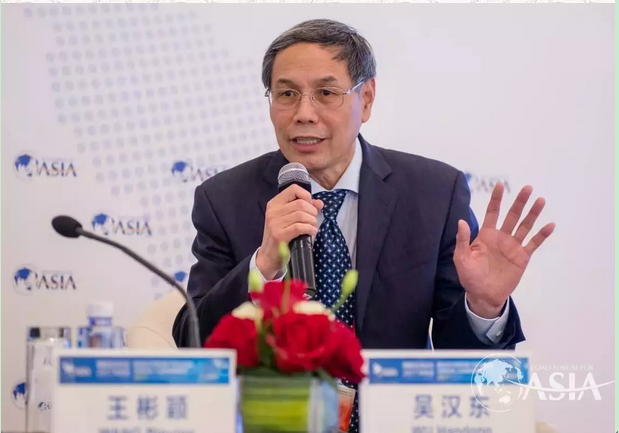As the first international conference organization that headquartered in China, Boao Forum for Asia (BFA) provided the governments, enterprises, experts and scholars with a high-level dialogue platform to discuss issues regarding economy, society, and environment, etc. Having been successfully held for 15 times so far, BFA has evolved into a main dialogue platform for Asia and the emerging economies.

On March 23rd, BFA 2017 Annual Conference was officially opened in Boao, Hainan Province with the theme of Globalization and Free Trade: the Asian Perspective, composing of four parts, namely, Belt and Road Initiative, Growth, Reform and New Economy.. From 23rd to 26th, 65 different activities will be held, including opening ceremony, general assembly, sub-forum and round-table conference, etc. H.E. Zhang Gaoli, Vice Premier of the State Council of the People’s Republic of China (PRC), delivered a keynote speech in the opening ceremony.
This annual conference has given a discussion space to intellectual property (IP) for the first time. On the morning of March 24th, “the Seminar on the Intellectual Property of Boao Forum for Asia 2017 Annual Conference” officially started, themed with “Intellectual Property: the Convoy of Innovation”.
This seminar was aimed at exploring the interplay between intellectual property(IP) and innovation so as to provide ideas and sound strategies for governments, intellectual property right organizations as well as enterprises in terms of constructing IP cooperation framework and promoting innovation in the world and Asian-Pacific region in particular. Presided over by Prof. Wang Xianlin from Shanghai JiaoTong University (SJTU), the seminar also invited lots of representatives both at home and abroad, including Shen Changyu, Commissioner of the State Intellectual Property Office (SIPO), Wang Binying, Deputy-General of the World Intellectual Property Organization (WIPO), Prof. Wu Handong, the former President of ZUEL and Derek ABERLE, CEO of NASDAQ: QCOM.
Prof. Wu Handong shared his insights during this seminar that innovative development, whose core system consists in IP, constitutes the characteristic of the era of knowledge-driven economy, and it leads the times, symbolizes the big international trend and embodies the inner demand of the transitional development of Chinese economy. He added that the widespread viewpoint of China’s making the U.S.-designed chips has brought great pain to the manufacturing industry of China. And what kind of pain it is? The answer is IP. Hence, Chinese enterprises should not only go out, but also go upward, meaning that we have to arm ourselves with IP so as to reinforce our competitiveness in the international market. Since IP and industrial development are closely related, he believes that the bright future of China lies in the flourishing industry and the enterprises. The more flourishing the industry is, the more prosperous our country will be, and the more competitive our enterprises are, the stronger our state will be, all of which, however, cannot be realized without IP.

Innovation, the eternal theme of human society, was listed as the head of Five Development Concepts of the Fifth Plenary Session of the 18th Central Committee of the Communist Party of China (CPC), and the 18th National Congress of the Communist Party of China (CPC) also proposed innovation-driven strategy. IP, as the driving force of economic development, has become a consensus in China, and its importance has been highlighted at the seminar this year. China has secured its position as a big IP country over the years, therefore, when it comes to intellectual property protection, it is imperative for us to focus on strictness, extensiveness and quickness before transforming from extensiveness to optimization, as Shen Changyu stated.
